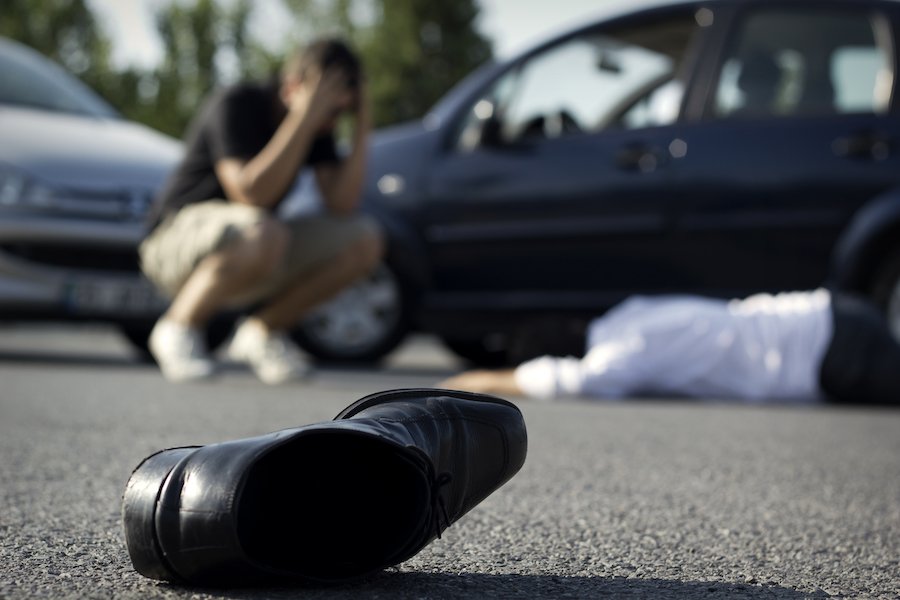DUI per se is the Colorado crime of having a blood alcohol concentration (BAC) of .08 or higher while driving, or within two hours of driving.
Here are five key things to know:
- Driving safely and acting sober is not a defense to DUI per se charges.
- Driving impaired with a legal BAC level is prosecuted as DUI as opposed to DUI per se, though they have identical penalties.
- If your BAC was at least .15, you are labeled as a persistent drunk driver (PDD) and sentenced as a repeat DUI offender.
- Potential defenses to DUI per se charges are that the breathalyzer was faulty or you had residual mouth alcohol.
- DUI per se is typically a misdemeanor carrying 48 to 96 hours of community service and other penalties that grow harsher with each successive conviction:
| First-time DUI per se |
|
| Second-time DUI per se |
|
| Third-time DUI per se |
|
To help you better understand the consequences of DUI per se charges, our Denver Colorado criminal defense lawyers discuss the following:
- 1. What is the definition of DUI per see?
- 2. What are the penalties?
- 3. What are the best defenses to assert in court?
(See our related article about Colorado DUI checkpoints/ sobriety checkpoints.)
1. What is the definition of DUI per se?
The usual standard for DUI is that you are too drunk or drugged to drive an automobile safely. But Colorado also sets an arbitrary maximum blood alcohol concentration (BAC) at which you can legally drive.
In Colorado, the legal limit for blood alcohol is .08%.1
If you drive with a BAC of .08% or higher, you can be found guilty of DUI – even if you showed no other signs of being drunk.

“Per se” of DUI per se is a Latin term meaning “in and of itself.”
The difference between Colorado DUI and DWAI
Section 42-4-1301 of the Colorado Revised Statutes (C.R.S.) defines “driving under the influence” (DUI) and “driving while ability impaired.”
“Driving under the influence” means driving a motor vehicle or vehicle when a person has consumed alcohol or one or more drugs, or a combination of alcohol and one or more drugs, that affects the person to a degree that the person is substantially incapable, either mentally or physically, or both mentally and physically, to
- exercise clear judgment,
- sufficient physical control, or
- due care in the safe operation of a vehicle.2
“Driving while ability impaired” means driving a motor vehicle or vehicle when a person has consumed alcohol or one or more drugs, or a combination of both alcohol and one or more drugs, that affects the person to the slightest degree so that the person is less able than the person ordinarily would have been, either mentally or physically, or both mentally and physically, to exercise clear judgment, sufficient physical control, or due care in the safe operation of a vehicle.3
DWAI is a bit like DUI “light.” It is an intermediate step between driving sober and driving under the influence.
Presumptions based on BAC level
Your BAC is the amount of alcohol present in your bloodstream as measured by a DUI blood test or DUI breath test. As the percentage of alcohol in your bloodstream goes up, so does your BAC.
If you are at least 21 years old and your BAC as measured by a DUI test is 0.05% or less, it will be presumed that your ability to drive was not impaired.4 Accordingly, if you choose to take a preliminary DUI breath test and you “blow” less than .05%, the officer will usually not arrest you.
Regardless of your age, however, if your BAC is at least .05% but less than .08%, it is a permissible inference that you drove while ability impaired by alcohol.5 This is sometimes erroneously called a DWAI “per se.” Unlike DUI, however, you are not automatically deemed guilty of DWAI based on your BAC level. You can fight a DWAI charge based on a BAC of less than .08% with evidence that your driving was not impaired.
Suppose your BAC falls within this gray zone. In that case, however, a jury may consider a BAC of .05% or higher with other evidence to determine and conclude that you were not just impaired, but actually under the influence. In short, you can be guilty of DUI when your BAC is less than .08% if you are unable to drive safely.
Conversely, if your BAC is .08% or more, you are guilty of DUI per se, even if your driving was perfectly fine. Safe driving is not a defense to a charge of DUI per se.6
DUI of drugs / DUI of marijuana
In Colorado, there is no such thing as DUI per se of drugs or DUI per se of marijuana.
It is, however, a permissible inference that you were driving under the influence of drugs if your blood contained five nanograms or more of delta 9-tetrahydrocannabinol (THC) per milliliter.7 THC is the primary active ingredient in marijuana. For more information, please see our article on Colorado DUI of marijuana.

DUI per se becomes felony vehicular assault if someone gets seriously injured.
2. What are the penalties?
DUI per se is a misdemeanor in Colorado unless:
- You have three or more previous DUI or DWAI convictions in any U.S. state or territory, or
- You are currently designated a Colorado persistent drunk driver (“PDD”).
In either of these cases, DUI becomes a felony in Colorado.
Colorado misdemeanor DUI penalties
First offense
Consequences of first-time DUI per se can include:
- Five days – one (1) year in jail,
- A fine of up to $1,000,
- A 9-month DMV revocation of your driving privilege,
- Up to 96 hours of community service, and
- Alcohol education classes.
Additionally, if your BAC is 0.15% or higher, you will be designated a Colorado persistent drunk driver and sentenced as a repeat DUI offender, even if it is your first offense.
Second offense
Consequences of a second DUI per se conviction can include:
- 10 days – 1 year in jail,
- A fine of $600-$1,500,
- Driver’s license revoked for up to one year,
- Ignition interlock restricted license for two years following reinstatement of your driving privilege,
- Mandatory alcohol education, and
- 48-120 hours of community service.
Third offense
Consequences of a third DUI per se conviction often include:
- 60 days – 1 year in jail,
- A fine of $600-1,500,
- Driver’s license revoked for two years,
- Ignition interlock device for two years following license reinstatement of your license,
- Mandatory alcohol education and treatment,
- 48-120 hours of community service, and
- If you are granted probation, the judge may order 90 days of continuous alcohol monitoring.
Colorado’s felony DUI penalties
As of 2015, DUI is a class 4 felony if:
- You have three prior DUI and/or DWAI convictions in any U.S. state or territory, or
- At the time of your arrest, you were designated a Colorado persistent drunk driver (PDD).
Consequences of a felony DUI conviction can include increased criminal penalties of:
- Two to six years in Colorado State Prison,
- A fine of $2,000 to $500,000,
- Three years of mandatory parole, and
- If you are granted probation, the judge may order 90 days of continuous alcohol monitoring.
3. What are the best defenses to assert in court?
Defending against a charge of DUI per se is not as easy as defending simple DUI or DWAI charges.
However, a skilled DUI lawyer knows that defending DUI charges is not impossible. Defenses to DUI per se often include (without limitation):
- The officer had no probable cause to pull you over,
- Your arrest wasn’t legal,
- You weren’t properly advised of your rights, or
- Your DUI chemical test was not conducted in accordance with the rules and regulations set forth by the Colorado Department of Health.8
Legal references:
- 42-4-1301 C.R.S.
- 42-4-1301 (1)(f), C.R.S.
- 42-4-1301 (1)(g), C.R.S.
- 42-4-1301(6)(a)(I), C.R.S.
- 42-4-1301(6)(a)(II), C.R.S.
- 42-4-1301(6)(a)(III), C.R.S.
- 42-4-1301(6)(a)(IV), C.R.S.
- Colorado Code of Regulations, CR 1005-2.
